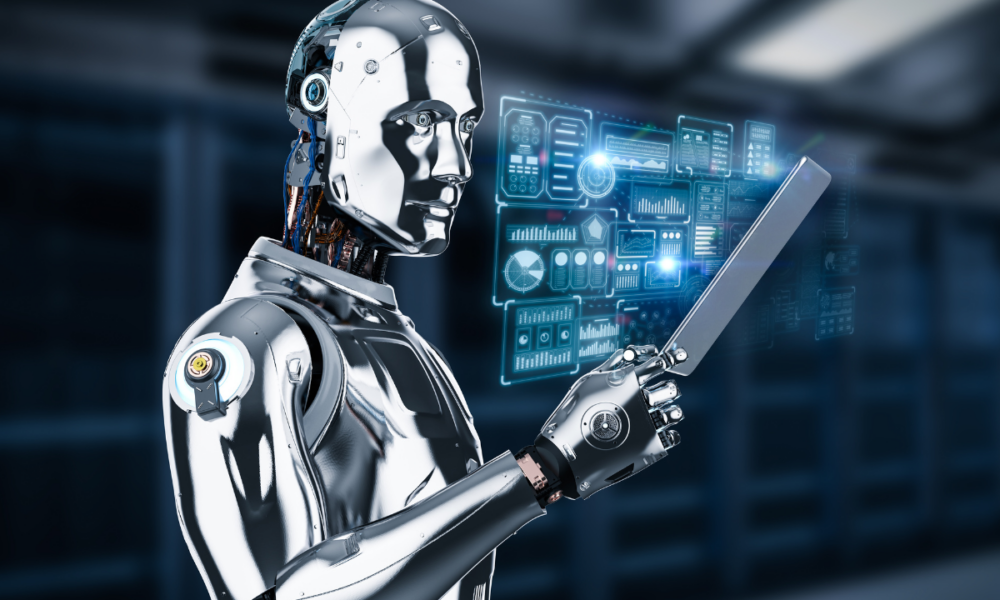Artificial Intelligence (AI) Natural language Processing (NLP)
A couple of weeks back we looked at the AI revolution that is unfolding around Artificial Intelligence by looking at ChatGPT, developed by the company Open.ai.
The core AI technique of ChatGPT is Natural Language Processing or NLP which is the underlying principle behind speech and text recognition. Here’s a quick overview of the key milestones along its development roadmap:
- 1877 – Technically, speech technologies start with the invention of phonographic recording by Thomas Edison in 1877. The next 90 years or so were pretty slow going, and it was largely limited to developing synthesised speech techniques.
- 1962 – Revealed at the Seattle World’s Fair in 1962, IBM’s Shoebox was the most advanced speech recognition machine of its time. It could understand 16 words spoken in English! From 1971 speech recognition rapidly improves, although the technology is still not commercially available.
- 1987 – In 1987 children’s toys appeared that could be trained to respond to voice, bringing speech recognition technology to the home. For business, 1990 saw the pioneering speech recognition software company Dragon Systems release Dragon Dictate for Windows and Mac operating systems.
- 1997 – Since then there was a steady commercial development with each generation improving NLP capabilities, with IBM’s ViaVoice appearing in 1997, really marking the beginning of today’s generation of speech recognition technologies.
- 2008 – Google launches Voice Search app for the iPhone, which set speech recognition technology loose on mobile devices. This was followed by Apple’s digital personal assistant Siri in 2011. Beyond being able to recognise speech, Siri can understand the meaning of what it is told and act on it.
- 2014 – In April Microsoft caught up with Apple by releasing Cortana… And 6 months later, Amazon announced Echo, its voice-controlled speaker powered by Alexa, its own digital personal assistant, similar to Siri and Cortana.
Today: AI and NLP in RecTech
Since then, along with other AI technologies, NLP has been adapted to add capability to software designed for specific recruitment agencies. For RecTech, AI is being increasingly used to assist with recruiting by simplifying and accelerating key process elements including:
- Resume screening – AI can assist with screening resumes by identifying key qualifications and experience, helping recruiters quickly identify top candidates.
- Identifying top candidates – AI can analyse resumes, job applications, and candidate data to score and identify the most qualified candidates.
- Reducing bias – AI can help to reduce bias in the hiring process by removing personal biases and focusing on qualifications and experience.
- Streamlining the recruitment process – AI can automate repetitive tasks such as scheduling interviews, sending email reminders, and more, allowing recruiters to focus on more high-level tasks.
Tomorrow: Where is the next generation of AI enhanced RecTech taking us?
There are several ways in which RecTech could be further improved by AI in the future, and we should expect more of the same. This will boost some of the advantages already identified above and add some new ones, including:
- Predictive hiring with greater accuracy – AI-powered predictive analysis can identify which candidates are most likely to succeed in a particular role, based on data from past hiring.
- Intelligent job matching – AI-powered job matching technology can analyse resumes, job applications, and candidate data to identify the most qualified candidates. This could help recruiters quickly identify top candidates and fill open positions faster.
- Extending the insight from virtual interviewing – AI-powered virtual interviewing technology is likely to be used to conduct candidate interviews remotely and use NLP to analyse candidate responses.
- Smarter chatbots and AI-powered recruitment assistants – AI-powered chatbots and recruitment assistants are going to be used to engage with candidates and answer their questions, providing a more personalised experience.
- Increased automation of repetitive tasks – AI is likely to increase the ability of RecTech to automate repetitive tasks, allowing recruiters to focus on more high-level tasks.
- Improving candidate engagement – AI-powered tools can be used to engage with candidates and answer their questions, providing a more personalised and efficient experience.
- Enhancing data analysis and insights – AI can be used to extract insights from large amounts of recruitment data, and help to identify patterns and trends that can inform recruitment strategy.
As research continues to influence the development of AI-based RecTech, software companies must ensure that advancements are expressed in RecTech solutions that are fair, unbiased, and transparent in their decision-making processes.
Keep up with RecTech and enjoy a competitive advantage with ETZ
ETZ’s leading timesheet and invoicing solution, streamlines the back office processing of your recruitment agency. Our complementary solutions, ETZ Comply for onboarding and document management, and Caspian for business intelligence give agencies further capability to streamline and uncover opportunities. To find out more call us on 0800 311 2266 or book a demo.





